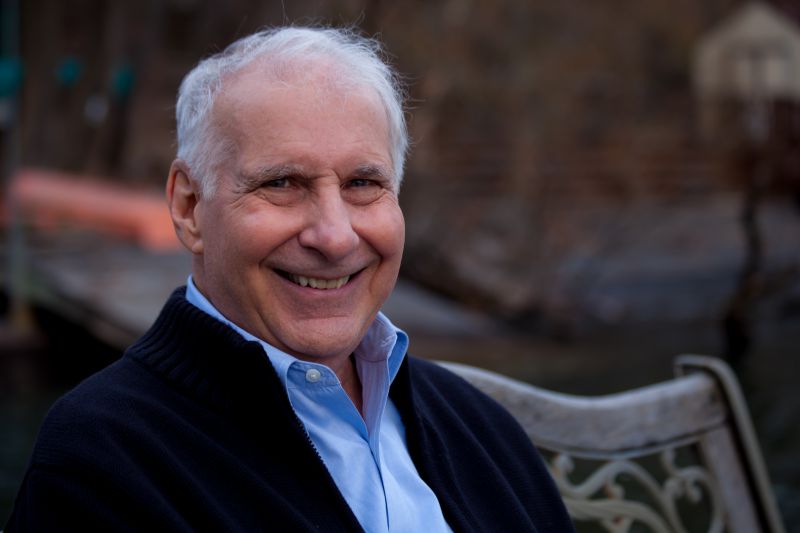Stimulants for ADHD Shown to Cause Sudden Death in Children
- September 13, 2009
- / Dr. Peter Breggin
- / blogs,huffingtonpost

By Dr. Peter Breggin
09/13/2009
A new study, published Monday in the American Journal of Psychiatry, confirms what I’ve been warning about for years in my scientific books and articles. The stimulants used to treat children for so-called ADHD can cause sudden cardiac arrest and death in kids. The study was published by the journal online in advance of regular publication in the near future. On Monday, I had the opportunity to comment on the study on Good Morning America. Here is more detail.
The stimulant group of drugs includes amphetamines like Adderall and Dexedrine and methylphenidate products such as Ritalin, Concerta, and Focalin. The study focused on Ritalin because at the time it was more commonly used than the amphetamines, although amphetamines are probably even more toxic to the heart.
The results of the study were as dramatic as they are tragic. Children and youth age 7 to 19 taking prescribed Ritalin for ADHD were four to five times more likely to die of sudden unexplained cardiac arrest than other children who were not taking Ritalin.
Despite these ominous results, the study was skewed to hide just how many children die of sudden death when taking Ritalin. The study relied heavily on identifying cases through toxicology reports at autopsy. But autopsy studies for the detection of these controlled substances are geared to detect more massive doses from addiction and overdose. They are not sensitive enough to detect many cases of routine prescription use. As a result, many stimulant-caused deaths were probably missed.
Also, the study excluded a large number of sudden deaths if the children had even the slightest evidence of pre-existing heart disease. They excluded these children even when the coroner thought that heart disease played no role in the death. For example, if a child was taking stimulants and had minimal heart disease, such as a slightly enlarged heart, the researchers didn’t include the case as a possible death due to the stimulant. They also did not count children who were severely obese, anorexic, or asthmatic. But all of these children, especially ones with undetected heart disease, are much more highly at risk for of stimulant-induced sudden death. They even excluded children whose parents had some forms of heart disease.
It’s as if they did not want to confirm the obvious—that an examination of children with heart disease and related disorders would swell the numbers of those killed by Ritalin. In fact, the current FDA approved label specifically mentions the risk of cardiac sudden death when Ritalin is given to children with heart conditions.
Unconscionable, the study researchers were trying not to prove that stimulants cause sudden death in children. They made the findings despite their own attempts to avoid it. I was not surprised to find that some of the researchers for this study are among the biggest advocates of psychiatric medications for children.
Sudden cardiac death in children is rare, probably occurring—as the study notes—in a slightly little less than 1 in 100,000 children. But we need to take a few other facts into account. First, the rate is going to be much higher in children taking stimulant drugs. Not just the four or five times higher found in this study, but many more times higher when vulnerable children are included such as those with undetected heart disease, severe obesity, asthma, or anorexia. Second, stimulant drugs are one of the few causes of cardiac death in otherwise normal children, making it impossible to detect the risk before it happens.
There is also evidence from studies of stimulant addicts and case reports that stimulant drugs can cause heart disease, including inflammation and scarring. When drugs like Ritalin and Adderall are prescribed in routine pediatric doses, they commonly cause hypertension, which can lead to an enlarged heart. Yet children with even slightly enlarged hearts were excluded from the study. So the researchers ended up excluding any children with enlarged hearts caused by the stimulant treatment itself.
The same is true in regard to anorexia. Stimulants commonly cause anorexia. The researchers therefore excluded cases of stimulant-induced death in anorexic patients when the anorexia itself could have been caused by the stimulant.
Meanwhile the psychiatric establishment—represented by American Psychiatric Association, NIMH and drug companies—has been quick to dismiss the importance of the study. Instead, they should be emphasizing that the study detected the risk even though the highest risk patients were excluded, including some who were displaying toxic stimulant effects such as heart disease and anorexia.
Meanwhile, it’s hard to imagine a greater tragedy for the surviving family than the unexpected death of a child from taking a medication prescribed by a doctor. I’ve been involved as a medical expert or consultant for families in several tragic cases of stimulant-induced cardiac death. I’ve also been an expert in cases of suicide in children caused by stimulants. These tragic deaths are always heartbreaking. Years afterward, the emotional wounds remain as raw as ever for their parents and brothers and sisters. The family’s trust for doctors and the healthcare system can be forever shattered.
Yet the answer to this problem is simple. Don’t give stimulants to children. There are far better non-drug ways to deal with so-called ADHD. ADHD is defined as involving hyperactivity, inattention, and impulsivity. These are not diseases—they are disciplinary and educational problems. Very often these children improve dramatically when parents develop a more consistent, rational and loving plan for discipline. Sometimes the problem completely disappears when the child is assigned a better teacher.
At times the child diagnosed with ADHD is simply a little delayed in learning self-discipline or finding the motivation to study. Often something is distressing the youngster, such as peer ridicule and abuse. Or the child may be especially full of life and need more opportunity to run, to play, and to be creative.
Whatever these children need, they don’t need toxic drugs that can lead to drug addiction, cause psychosis and depression, stunt growth, impair brain function, and even cause sudden cardiac arrest. I describe and document all of these adverse stimulant effects, and many more, in my medical book, Brain-Disabling Treatments in Psychiatry: Drugs, Electroshock, and the Psychopharmaceutical Complex, Second Edition (2008).
Our children don’t need drugs—they need us to protect them from misguided health professionals while we make every effort to meet their real needs in our families and schools. It’s time for all of us to retake responsibility for our children.
Originally published on The Huffington Post.
 Psychiatric Reform Accomplishments
Psychiatric Reform Accomplishments